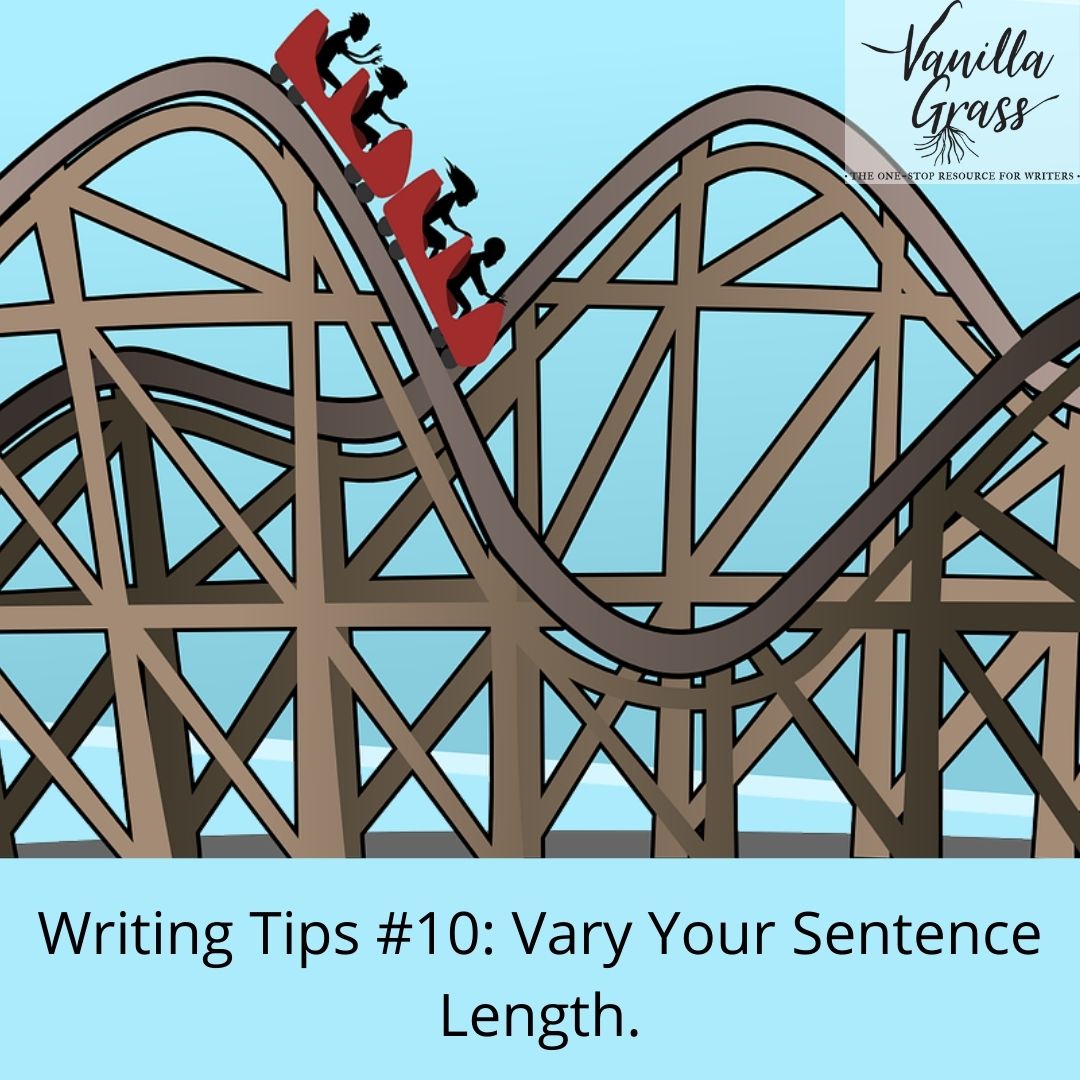Quick Writing Tip For Writers: The best writers understand flow.
What I mean is, their prose follow a natural cadence that favors both long and short sentences.
So, how do you write a book that sounds natural to your native tongue? Vary your sentence length.
When a writer varies their sentence lengths, their words sound smooth when spoken aloud, like a beautiful song at times, fluid and moving, and other times halting and short to make room for more abrasive emotions.
Too Many Long Sentences Will Demolish a Reader

Mixing short sentences with their longer coutnerparts prevents the reader from getting tired out. Too many commas and semi-colons in a row and your reader’s eyes begin to glaze over. It also makes it more difficult to read, which can limit your audience to only the most studious.
For a quick peek into how readable your book is, check out our readability calculator!
A plethora of long sentences one after the other can also feel like, well, rambling. Or in more refined societies, stream of consciousness, which is a very difficult writing style to pull off. The Road manages it alright, if you’re looking for a writer to emulate and feeling bold, but most texts that have perpetual run-on sentences are a right snooze.
When you’re speeding up a scene, you can create quick bursts, but surround them with something a little longer so it all rolls off the tongue.
Too Many Short Sentences Will Give Your Reader Whiplash

Conversely, a slew of short sentences feels like one of those wooden, old school roller coasters.
What? No! How could you? Stop. I can’t. You can’t? It is. It isn’t. It sucks.
It does. So don’t do it.
Observe this passage from Dune.
“I must not fear. Fear is the mind-killer. Fear is the little-death that brings total obliteration. I will face my fear. I will permit it to pass over me and through me. And when it has gone past I will turn the inner eye to see its path. Where the fear has gone there will be nothing. Only I will remain.”
– Frank Herbert, Dune
Notice how he starts off with short, punchy sentences to bring the reader in, then eases into a longer one where he wants to show off the beauty and profundity of his thought. Then ends short again to punctuate the ending.
Now you go give it a try. And if you’re wondering if you’re doing it correctly, read it aloud and see if you stumble or get lost on the way. The cadence of your passage should flow naturally from your tongue.
And if you want other great tips, check out our Writing Tips Series.
- Writing Tip #1: Punctuation Abuse
- Writing Tip #2: When to Use Adverbs
- Writing Tip #3: Use Dialogue Tags Appropriately
- Writing Tip #4: Avoid Repetitive Words
- Writing Tip #5: Add Variety to Sentence Beginnings
- Writing Tip #6: Don’t Start With Dialogue
- Writing Tip #7: Tighten Sentences
- Writing Tip #8: Watch Your Adjectives
- Writing Tip #9: Make Analogies Relevant




